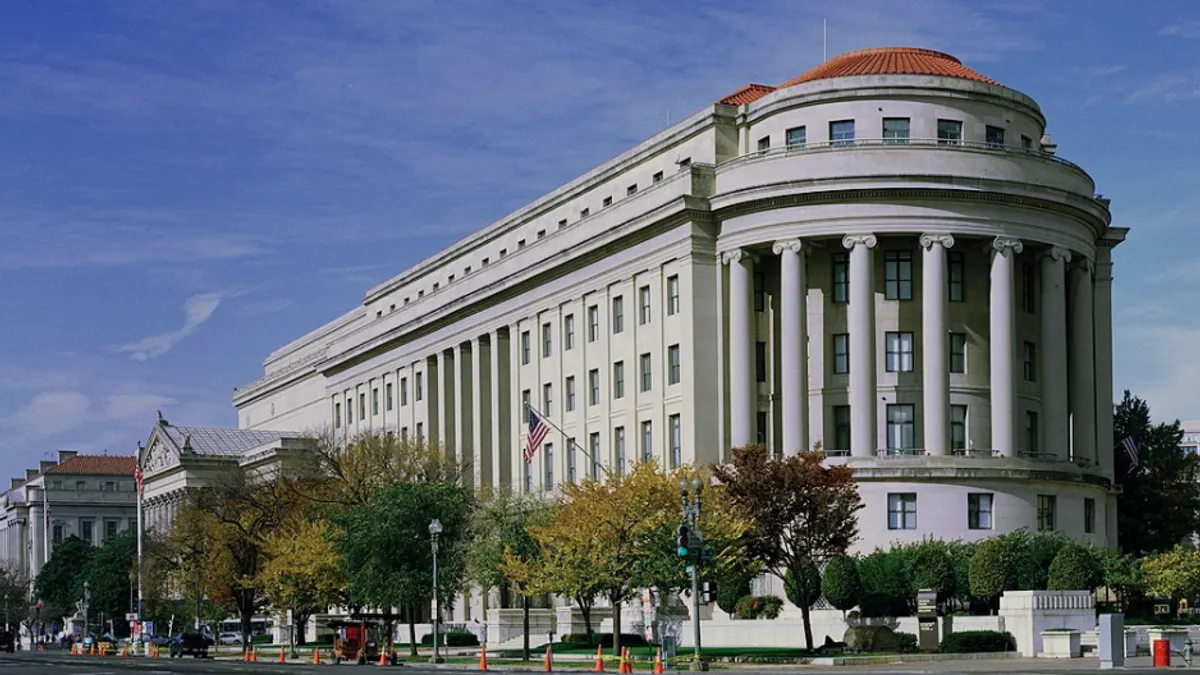Dive Brief:
- The Federal Trade Commission (FTC) is exploring a crackdown on “junk fees,” redoubling a fight by the Biden administration against hidden costs imposed by companies ranging from airlines and banks to hotels and providers of internet and cellphone services.
- The FTC is seeking public comment on a rule that would bar unexpected price increases and charges for worthless, “free” or fake products. It also aims to stop fees added in fine print or foisted on consumers through the use of deceptive overpricing, hidden recurring billing and other “digital dark patterns.”
- “It’s beyond frustrating to end up spending more than you budgeted because of random, arbitrary fees,” FTC Chair Lina Khan said in a statement. “Companies should compete to provide the best quality at the best price, not to see who can squeeze the most added expenses out of consumers.”
Dive Insight:
President Joe Biden last month pledged to wipe out hidden fees, noting that consumers find the charges especially harmful as they try to cope with inflation running at close to a 40-year high.
“‘Junk fees’ are hitting families at a time when they can’t afford it,” Biden told the White House Competition Council on Sept. 26. “It’s all taking money out of the pockets of average Americans.”
Biden flagged banks’ overdraft fees, cellphone service termination fees, hotel “processing” fees and rebooking charges imposed by airlines that have canceled a flight. “It’s simply not fair,” he said.
For example, consumers who book a hotel room may find an unexpected fee added to their bill at checkout, the FTC said. Some companies load on fees without consumers’ consent, misrepresent optional upgrades or services as mandatory, or charge for products and services with little or no value.
“These junk fees — which add up to tens of billions of dollars each year — can drive up prices, make comparison shopping difficult and leave consumers feeling powerless and cheated,” the FTC said.
The FTC is also seeking public comment on a separate rule that would make car purchases “more clear and competitive" by banning auto dealers from imposing junk fees or using bait-and-switch advertising tactics. The commission would gain authority to recover money when auto dealers mislead buyers.
“As auto prices surge, the commission is seeking to eliminate the tricks and traps that make it hard or impossible to comparison shop or leave consumers saddled with thousands of dollars in unwanted junk charges,” the FTC said.
The FTC approved publication of the proposed junk fee rule in a 3-1 vote, with Commissioner Christine Wilson dissenting.
The rule “is sweeping in its breadth, may duplicate or contradict existing laws and rules, is untethered from a solid foundation of FTC enforcement, relies on flawed assumptions and vague definitions, ignores impacts on competition and diverts scarce agency resources from important law enforcement efforts,” Wilson said before the FTC vote.
The proposed rule would apply to auto financing, phone cards, fuel cards, payday lending, telecommunications, live entertainment, higher education, financial products and services, telemarketing, funeral services, publishing, insurance, membership programs and travel, including airlines, hotels, room-sharing, car rentals and cruises, Wilson said in a written statement.
“Some of these sectors fall outside the FTC’s jurisdiction,” she said.








